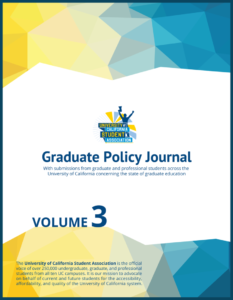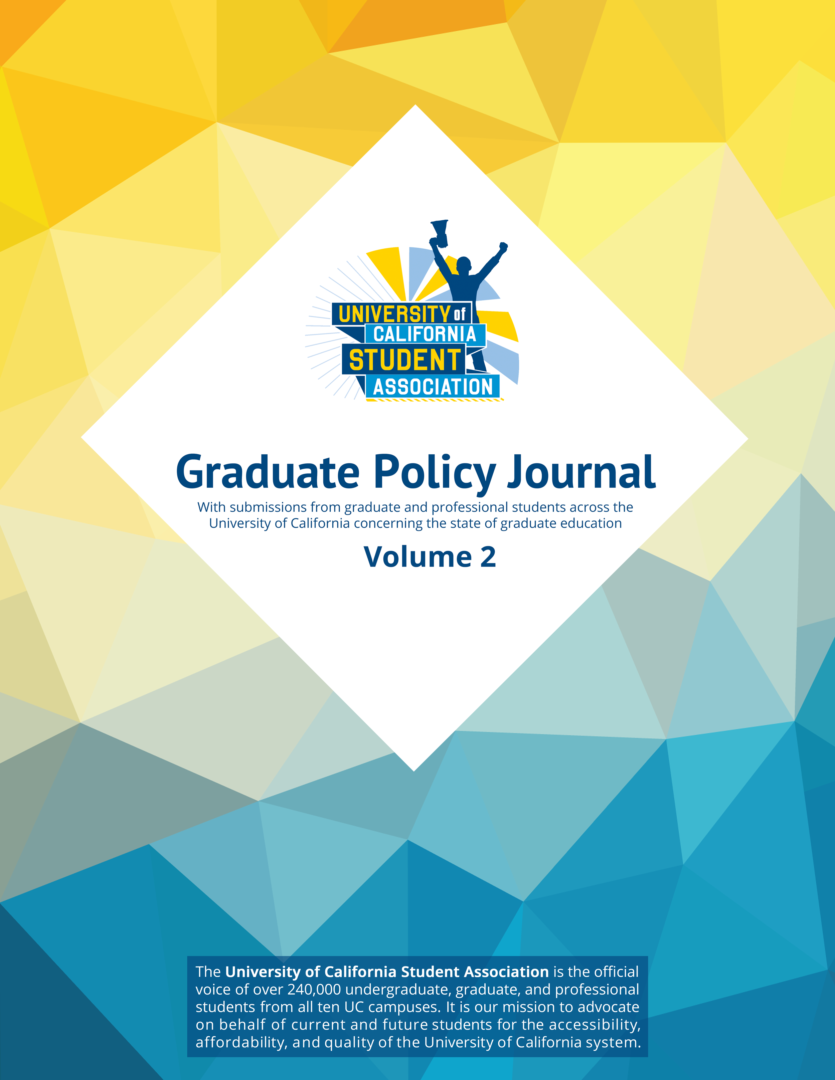Student Labor Protections
Problem: Graduate and professional students, especially PhD students, are often in the dual role of both student and employee, and additionally switch between multiple employment roles (e.g. TA, GSR, instructor, non-employed fellow) throughout their graduate and professional career. They have inconsistent and inadequate labor protection throughout their graduate and professional career, and are at times subject to policies that don’t meet their needs as students and workers.
- Ensure graduate and professional students in non-TA roles have access to healthcare, sick days, and worker’s compensation
- Continue working on training and standards for supervisors of graduate and professional students
- Win bargaining power for GSRs
- Form a systemwide body to address work-related misconduct
- Address the concerns with mandatory reporting procedure and Title IX policy, by: 1) Clarifying boundaries of reporting responsibility for student workers with ambiguous roles that cross student/employee line; 2) Educating undergraduate and graduate students on the procedures and confidential options, and delay implementation until awareness is ensured; 3) Addressing unique graduate and professional student concerns in policy regarding student-faculty harassment, including funding protections for those who make accusations
Accountability of Student Outcomes
Problem: Graduate students, especially master’s and professional students, are often given promises about what kind of support they will receive and careers they can expect, and then end up in programs that do not fulfil their needs or promises. Entering students need to be aware of what benefits and support their program can justifiably offer them, especially given the high tuition they pay. Over one-third of graduate and professional students at the UC report symptoms of mild to moderate depression, significant predictors of which include academic preparation, career prospects, and social support.
- Implement multi-year contracted funding guarantees for normative time to degree
- Create decision-making panel of students and faculty to address program promises and benefits
- Develop standards of advising and mentorship training and means of accountability
- Collect and publish report on students who are promised certain options, e.g. completing a research thesis for master’s students, but then blocked by their department
- Require departments to collect (from current and former students) and publicly post data on student outcomes so that incoming students can make informed decisions, including: Retention rate and reasons for leaving; Average time to completion; Percent completing research thesis (or other relevant field-specific options); Debt accrued during time in program; Career outcome 2 years after completion (e.g. percent in PhD program, industry, still seeking jobs, in a different field, etc.)
- Require full transparency and student review on PDST and other fee increases, both in what they plan to be used for and how they were used
- Require any change in program status from Master’s to Professional degree to go through student government approval.
- Continue to assess graduate well-being and ensure adequate, confidential mental health services to graduate and professional students, including: Mental health offices separate from undergraduate students to improve confidentiality for teaching assistants; Support groups for graduate and professional students; Workshops for balanced and healthy lifestyles including best practices for productivity, financial management, and conflict resolution
- Prioritize mentorship best practices and training for faculty advisors by: Developing graduate and professional student evaluations for faculty advisors to identify successes and opportunities for growth; Encouraging in-person training for faculty advisors to recognize and respond to signs of distress in students; and, Creating opportunities for informal faculty-student interactions and forming mentorship relationships between students within programs
Housing and Food Security
Problem: Graduate and professional students consistently face difficulty affording adequate food and housing, both on and off campus. Students are choosing to live farther away from campus to afford living expensive, making the availability of affordable and/or public transportation to these areas necessary as well. In the Spring 2015 GPSES (Graduate and Professional Student Experience Study), it was discovered that 25% of UC graduate and professional students lack reliable access to sufficient quantities of affordable, nutritious food. Food insecurity disproportionately affects students of color and first generation higher education students.
- Build additional on-campus housing units for graduate and professional students, provided that they are affordable on a graduate stipend and meet graduate living standards (e.g. individual rooms, family options, kitchens)
- Work with local and state legislature to increase availability of affordable housing in areas around campuses by: Creating task forces on city councils to address student housing needs; Repealing legislation limiting rent control measures; and, Passing legislation supporting development of affordable housing units
- Remove barriers to public transportation, through legislation and administrative assistance to reduce the cost of transportation for graduate and professional students
- Increase availability of transportation to important community locations such as grocery stores
- Expand CalFRESH eligibility and accessibility to ensure more graduate and professional student enrollment
- Ensure emergency aid transition housing spaces for graduate and professional students
- Require each UC to honestly report cost of living information before students arrive on campus
- Create easily accessible food pantry/basic needs space on each campus with graduate and professional student specific hours
- Increase student awareness of and access to basic needs resources, including: CalFresh orientations for all new graduate and professional students; and Simple websites for basic needs resources, similar to the ones at Berkeley, San Diego, Riverside, and Davis
- Work collaboratively with university and community groups to create partnerships for access to nutritious, affordable food
- Make a system-wide commitment to data collection and analysis to monitor progress of Food Security (i.e. UCOP Global Food Initiative Student Food Access and Security Study)

